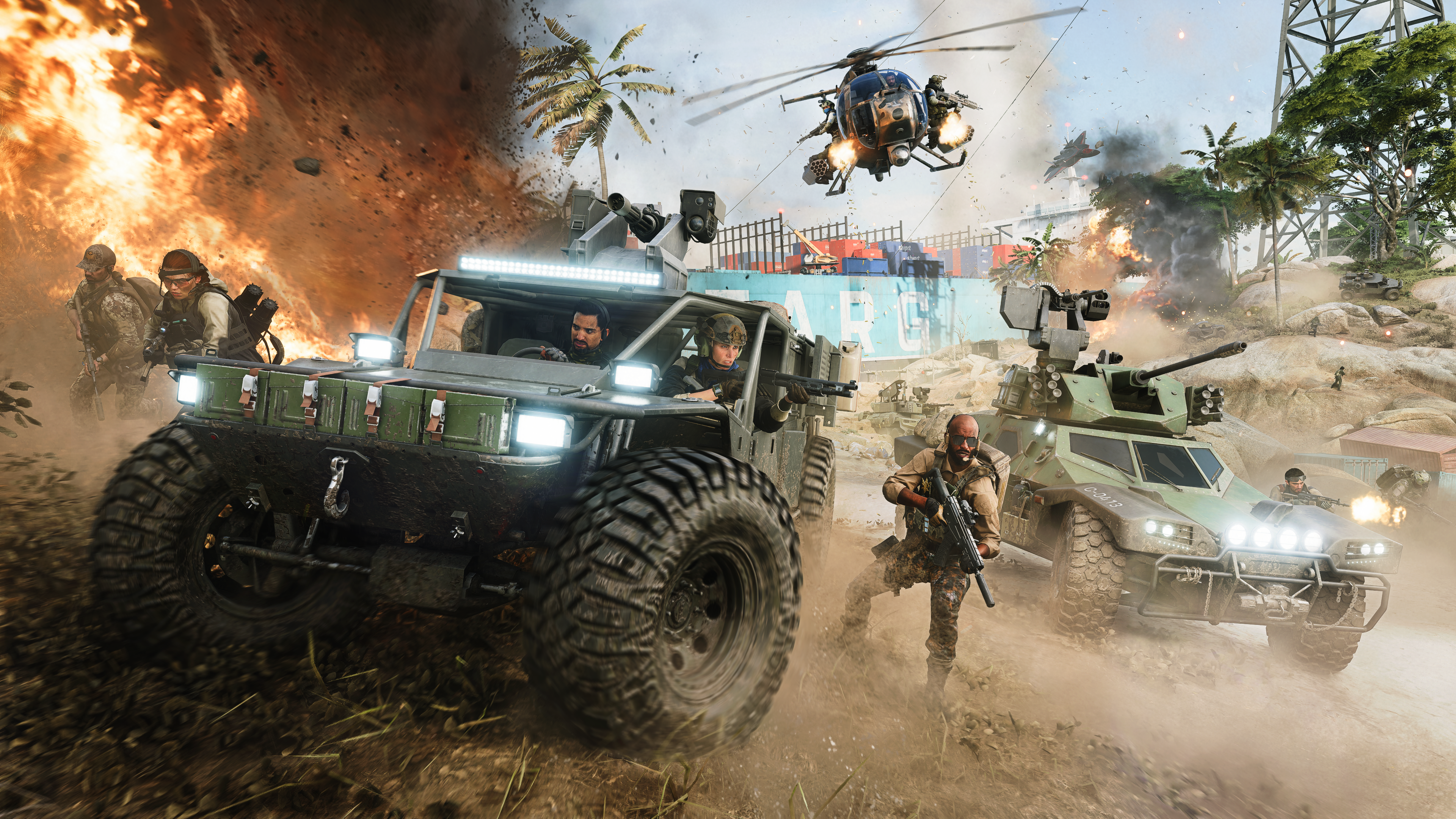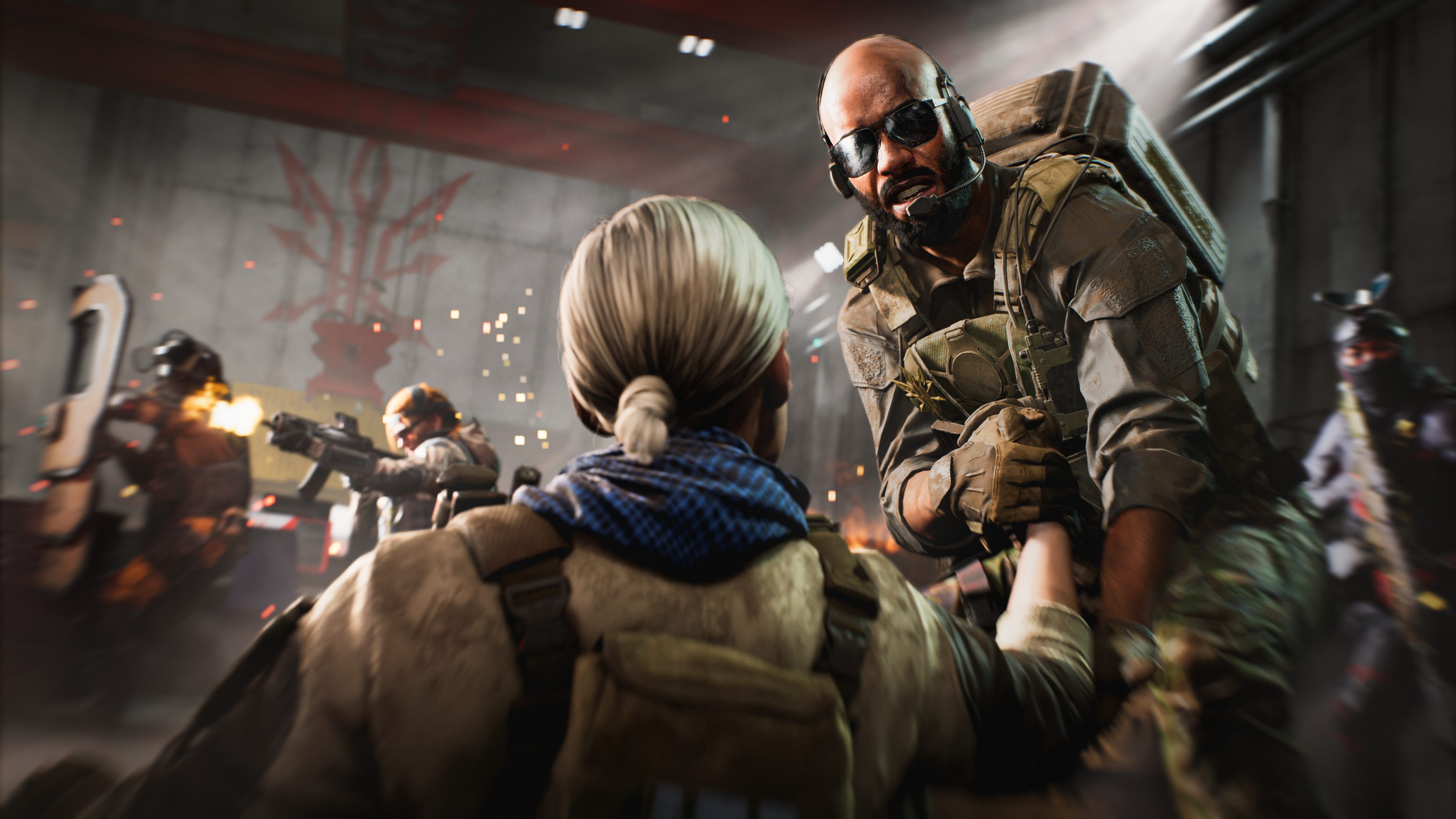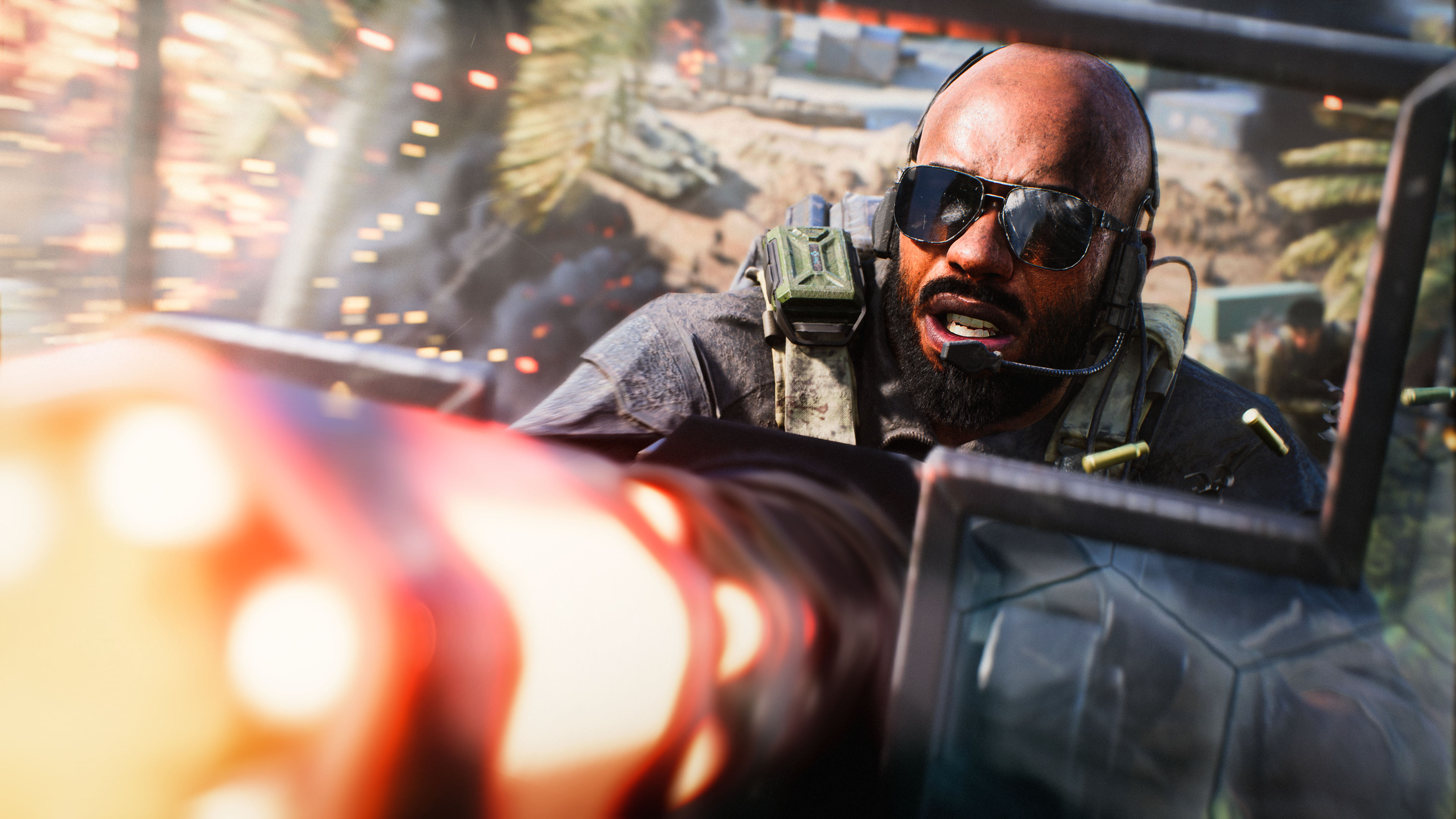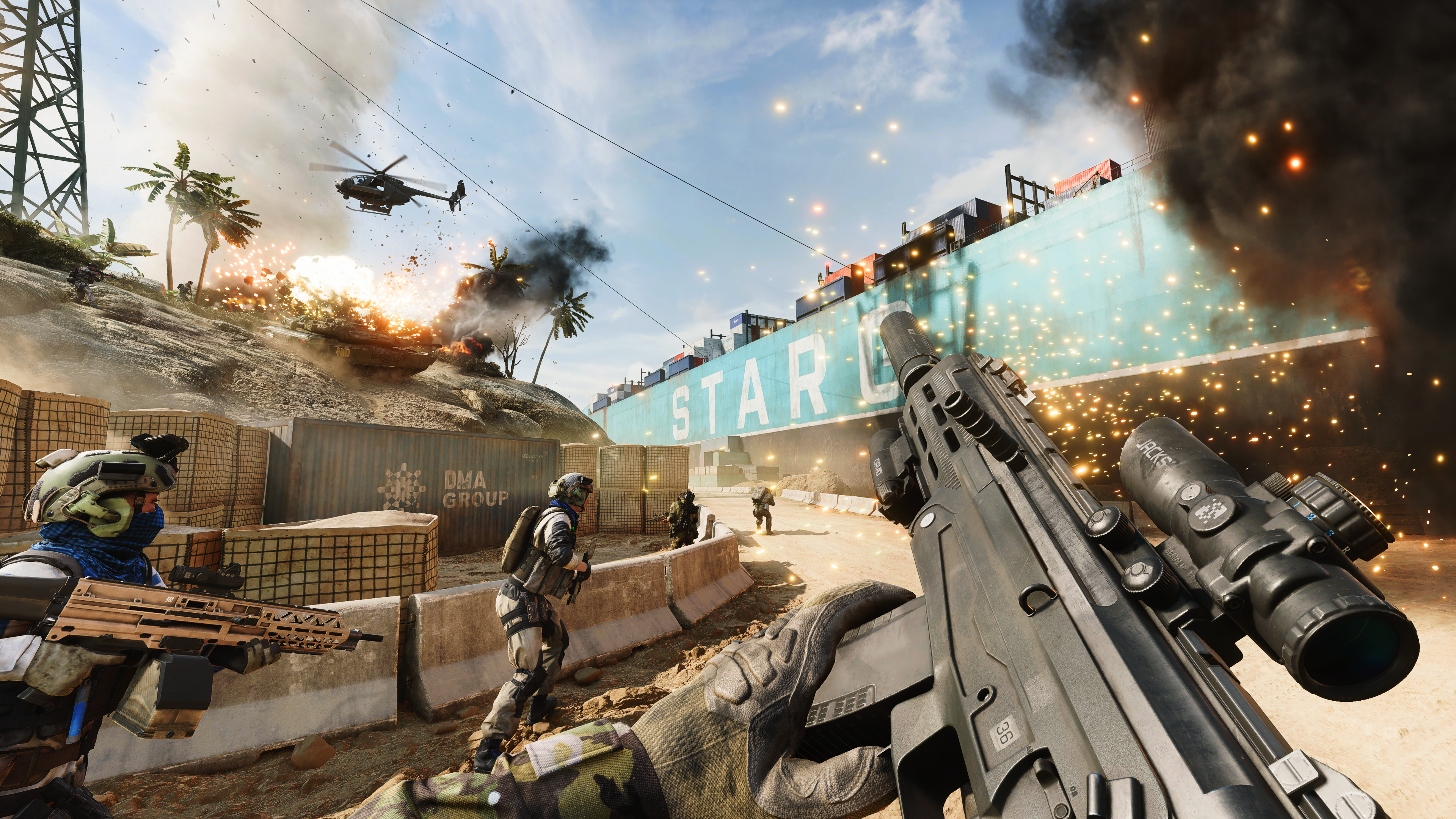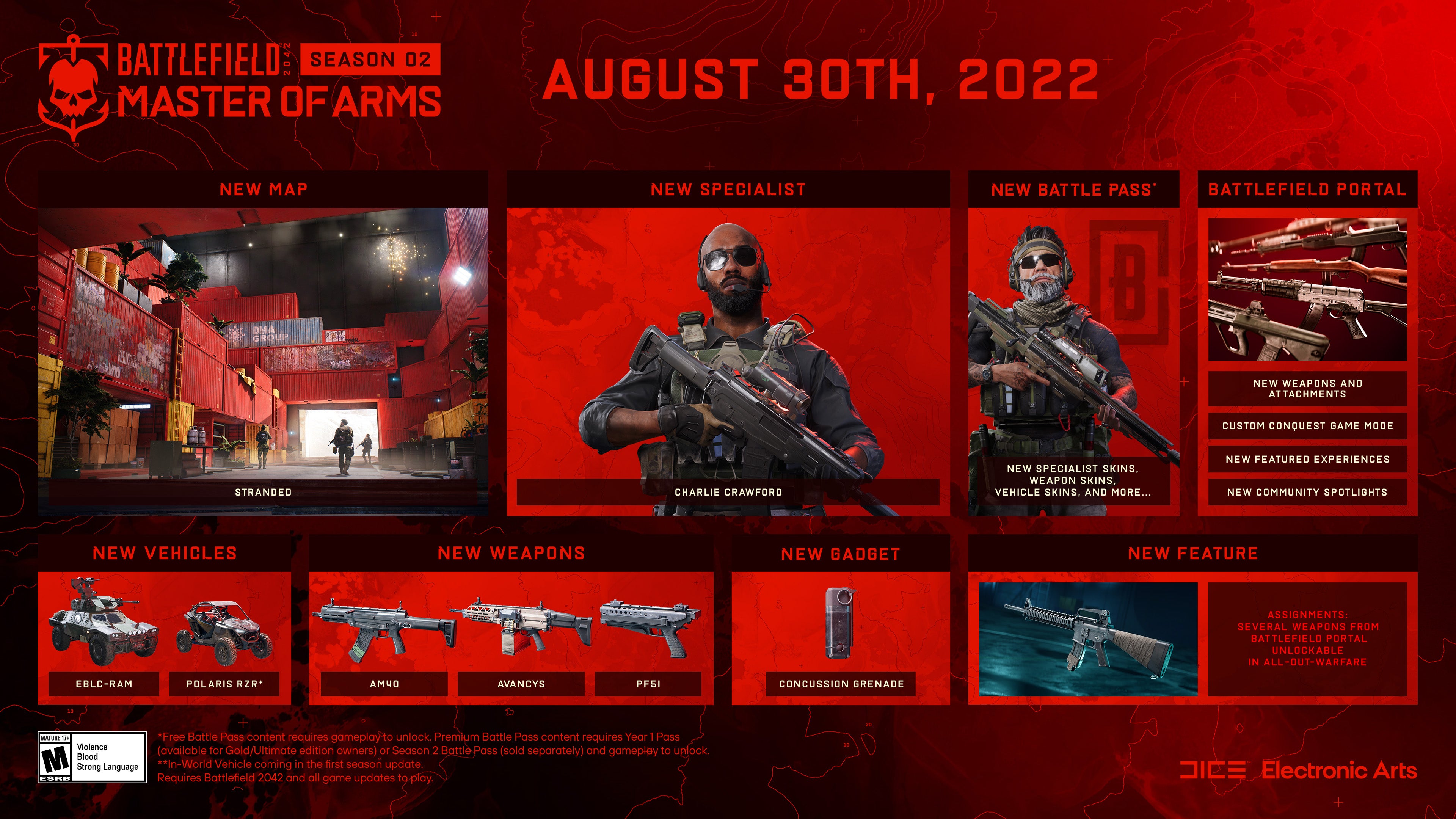The content drop is familiar too, with Season Two containing just one new map, a new specialist, a couple of new vehicles and some new weapons. Despite the snail’s pace in which DICE is moving to improve the game since its disastrous launch last year, the new content looks promising, and most importantly feels up to the standard we used to expect from the DICE of yesteryear. The new map, Stranded, is even smaller than the already small Exposure that dropped with Season One. That’s a good thing. The biggest complaints about the launch maps stemmed from the fact that they were far too big. The large scale was intended to accommodate the 128-player lobbies new to Battlefield 2042. The problem is that it would take an ungodly amount of time to move from objective to objective, while the sheer size of the maps meant that DICE encountered hardware limitations (yes even on the new-gen consoles) when trying to fill the map with cover or even simple surface details. As a result, the maps felt barren and empty. Stranded is the complete opposite. It almost feels like an admission that DICE overstepped the mark with the gigantic maps. In an early hands-on session for Eurogamer, I enjoyed the fact Stranded felt very infantry-focused, with tight chokepoints and plenty of cover. But what particularly struck me was just how gorgeous the map looked. Thanks to its smaller size, DICE has been able to concentrate on adding surface details, fauna, and grass all over the map. It felt more like a Battlefield map from previous games, and one which shows just how technically capable the Frostbite engine can be. There is still one elephant in the room: the lack of destruction. It’s a signature element of the Battlefield franchise that’s still missing. This was raised with DICE in a subsequent Q&A session, but was left unanswered. If I had to speculate, I’d guess the game’s pesky instance count is again limiting how much DICE is able to add to the map. The new specialist, Charlie Crawford, is stereotypical British geezer that appears to be inspired by Jason Statham. As a support specialist, Crawford can revive teammates faster while replenishing their ammo. Crawford’s signature gear, the Vulcan, is a mountable minigun with a ballistic shield. The Vulcan is perfect for defending a position and providing cover fire. To balance it out, the minigun has a limited angle of rotation, making it easier to opponents to flank and take out the operator. It can also be taken out with one or two well-aimed rockets. Onto vehicles, and Season Two comes with two new four-seaters: the EBLC-RAM and the Polaris RZR. The RAM feels like a hybrid between a hovercraft and a tank, featuring a wide array of weapons and the ability to plant tactical beacons. Meanwhile, the RZR is a lightweight buggy that quickly get you between objectives. Three new weapons are also coming with Season Two. First, the AM40 assault rifle has a high rate of fire so feels more like a submachine gun. It’s pretty good for close combat although I found myself running out of ammo quickly. Next, the Avancys is a light-machine gun and probably my favourite of the three. It’s pretty accurate, has a large ammo capacity and fast rate of fire. Finally, the PF51 is an automatic secondary weapon which does as well as you would expect from a sidearm. We also see the return of conclusion grenades, although their effectiveness is questionable when you’re surrounded by all sides. I would probably stick to a standard frag grenade. If three new weapons and a concussion grenade feels like a paltry offering, DICE agrees, which is why by the end of the season, older weapons from previous titles that in Battlefield Portal will make their way to All-Out-Warfare. Speaking of Portal, the new season against contains no new content for the mode. Eurogamer did ask DICE whether there was any plans for additional content, but again, no response. It’s a real shame, Portal was one of the redeeming features of the game at launch, allowing players to play on maps with weapons from previous games. But Portal is sorely in need of content. This largely sums up the state of the game. Despite my positive impressions of what’s to come, Battlefield 2042 is in dire need of more content. At the current pace, the game won’t feel complete until the end of Year One updates. And as to whether there will be a Year 2 in EA’s grand vision of live service gaming, I have my doubts.
